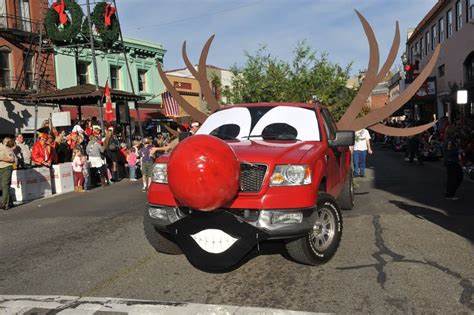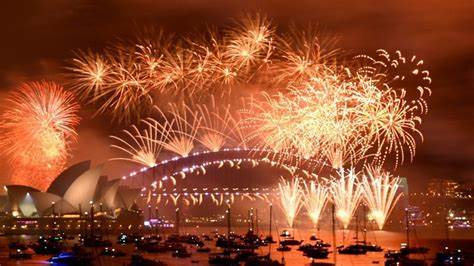Christmas is just days away and whilst most countries have their own Christmas traditions, many actually have specific Christmas laws in place - and some are a little on the strange side.
Whether you’re a resident or simply planning a visit to one of these countries, to ensure you don’t break any of these laws by mistake, experts at Top Rated Law provided useful insight on some of the most surprising Christmas laws around the world.
Seven strange Christmas laws from around the world
1. Driving with a Christmas party outfit on can result in a fine [UK]
Depending on the Christmas outfit you’re wearing, it’s possible you could receive a fine of up to £5,000 in the UK. Specific attention is paid to items you wear on your face and feet, as if an outfit is deemed to be interfering with the person’s ability to drive responsibly, then that driver can actually be fined.
Craig Anderson on behalf of Top Rated Law adds: “The UK’s rule 97 of the Highway Code aims to ensure that drivers are not wearing any clothing items or footwear that could interfere with their driving.
“Wearing an elf or a Santa costume, for example, could make driving challenging. Aspects such as the costume’s shoes could make it difficult to feel the pedals, while any hats could affect vision, so drivers should be mindful of their outfit choice.”
2. Debt payments not allowed on Christmas day [USA]
Back in 1838, the state of Arkansas made it illegal to pay debts on Christmas day - and it seems this law hasn’t changed since. According to the law, anyone with a debt due to be paid then, has to pay it a day earlier, on Christmas Eve.
Craig on behalf of Top Rated Law adds: “Christmas is one of the most expensive times of the year, however, this law interestingly gives those in debt a day off from having to settle it and deprives those who are owed a debt of one day’s interest.”
3. Christmas crackers cannot be sold to children under the age of 12 [UK]
In 2013, the UK government made it illegal to sell Christmas crackers to children under 12 years old. Interestingly, when the law was first introduced the age restriction was 16, but was amended in the government’s attempt to remove any unnecessary laws. The regulation says that economic operators are prohibited from making “a pyrotechnic article available on the market” to anyone under the age of 12.
Craig on behalf of Top Rated Law adds: “The law which prohibits the sale of Christmas crackers to children under 12 is called the Pyrotechnic Articles (Safety) Regulations 2015. Whilst it may not seem obvious, Christmas crackers are included in the regulation, because the popping sounds they make is considered to be a result of a small amount of pyrotechnics.”
4. Christmas bonuses are required BY LAW [Mexico]
If you live in Mexico, your employer is required by law to give you an annual Christmas bonus - lucky you! The bonus amount is calculated based on the employee’s salary and has to be paid by 20th December. Employers who are late with the bonus payment, don’t pay it or decide to pay it in instalments, are subject to a fine that amounts to a whopping 5,000 times the minimum wage.
Craig on behalf of Top Rated Law adds: “Mexico’s Christmas bonus law is referred to as ‘aguinaldo’ and was introduced in 1970. According to the law, an employee’s Christmas bonus needs to amount to at least 15 days worth of wages. Costa Rica also requires the payment of such bonuses.”
5. You can’t keep Christmas lights however long you want [USA]
It is actually illegal to leave the Christmas lights put outside your home past a certain date in San Diego. The city gives its citizens a fair amount of time to take down their Christmas lighting, which is well into the New Year on February 2nd. If they’re still found to be up and in use past that day, residents can be subject to a $250 fine.
Craig on behalf of Top Rated Law adds: “Keeping your Christmas lights on inside your home for however long you want is naturally no issue at all, but leaving them on outside your home for a long period of time might cause conflicts with neighbours, as well as landing you with a pretty hefty fine.”
6. Making or using a snow slide is prohibited in London [UK]
On the off-chance that London experiences a white Christmas, those in the UK capital are banned from making or using a slide on the city’s streets. If you’re found sliding on snow or ice, you risk getting a £500 fine. This law was first introduced back in 1839.
Craig on behalf of Top Rated Law adds: “This winter law is part of the Metropolitan police act of 1989. It states that Londoners aren’t allowed to slide “upon ice or snow in any street or other thoroughfare”. The reason for that is that you could potentially put other people in danger by doing so.”
7. Natural Christmas trees are not allowed [USA]
Using natural Christmas trees in retail stores in New York is strictly prohibited by law. While in Philadelphia, if you’re living in a high-rise building (or a multi unit building), you’re also not permitted to have a natural Christmas tree. According to the law, if you want a natural Christmas tree at home, you need to be living in a place that houses only one or two families.
Craig Anderson on behalf of Top Rated Law adds: “Philadelphia’s Official fire code from 1982 prohibits natural Christmas trees in some buildings.
“The law was enforced as those trees are considered to be a fire hazard. A $300 fine awaits you, if you’re found to have such a tree when you shouldn’t.”
A selection of images for editorial use can be found in this folder. We only ask if you use any of the images, proper credit is provided.











